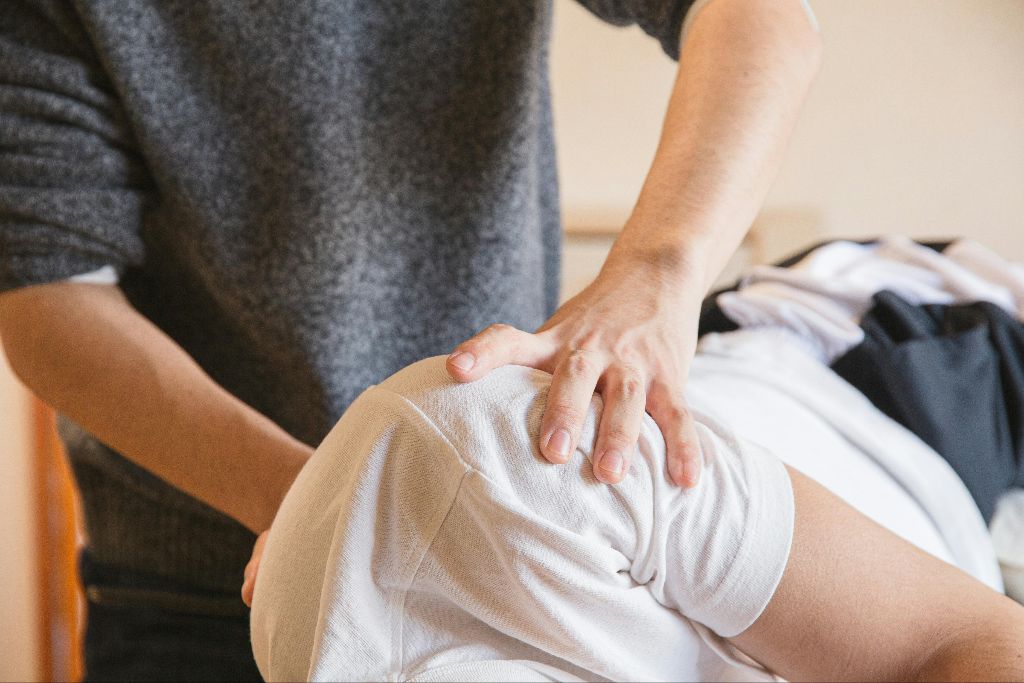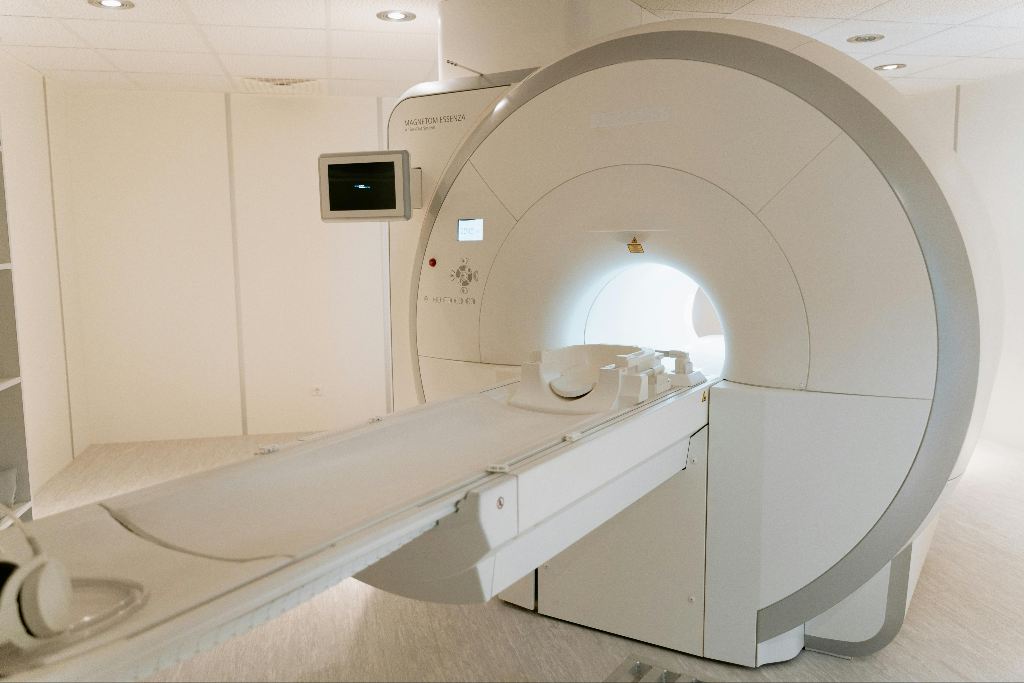If you’ve been in a car accident, you know how disruptive the experience can be on your entire body. Whether you’re involved in a small fender-bender or a serious rear-end collision, your body can also be damaged and in need of repair.
It’s important to find an Atlanta orthopedic doctor that has the knowledge and experience to treat all types of car accident injuries. Here are the seven most common types of injuries from auto accidents:
1. Whiplash
Perhaps the most commonly associated with car accidents, whiplash occurs when your body is suddenly jolted back and forth, causing your neck to jerk forward and backward. This overextension of the neck muscles can also affect the joints and ligaments in your neck and back, further contributing to the pain and discomfort associated with a whiplash diagnosis.
If you are experiencing symptoms such as neck pain, stiffness in the neck and back, or you notice an increase in pain when you are in motion, you may have suffered a whiplash injury.
Another common symptom of whiplash is a decrease in range of motion, meaning you may not be able to turn your neck or tilt your head as far as you normally can.
While whiplash is the most common injury after a car accident, it is one of the more easily treatable ones, but only when you immediately seek treatment.
2. Concussion
Contrary to popular belief, you do not need to hit your head to be diagnosed with a concussion. A concussion can also occur in similar circumstances as whiplash, like when the force of the car accident causes your head to jostle back and forth.
The concern with a concussion is the impact of the incident on the brain. Concussions are considered mild traumatic brain injuries (TBIs). This is because the sudden movement of the head and neck can cause the brain to move around, which can damage brain cells and disrupt communication flow from the brain to the rest of your body.
Some symptoms of a concussion can occur right after impact, such as a headache, dizziness, or even temporary loss of consciousness. Concussion symptoms can also be delayed, as it takes the body a while to react to the trauma.
Other common symptoms of concussion can include feeling intense pressure on the head, throbbing pain, and also feeling confused or difficulty focusing. It is important to seek medical treatment as soon as these symptoms appear so the severity of the injury can be assessed and to begin a proper treatment protocol.
3. Dislocated Joints
Sometimes, the force of the injury and the place of impact on the body can lead to dislocation. The most common dislocations include the shoulder and elbow, likely related to the impact of the jolting on your upper body. Other commonly dislocated joints after a car accident include areas of the spine, hips, fingers, jaw, knee, wrist, foot, and ankle.
Seatbelts are an important safety feature in cars and help prevent more grave injuries. However, if not draped properly across the body, your shoulder may jostle out of position and cause the joint to slip out of place. Front seat passengers are also at a slightly higher risk for dislocating a knee due to the potential impact of the knee with the steering wheel or dashboard due to the force of the vehicles colliding.
Most of the time, a joint dislocation will be felt immediately with intense pain. However, in some situations, a dislocation of the shoulder or other joint may not be apparent right away.
If you experience any of the following issues in any joint, you may have a dislocation that needs to be handled by an Atlanta orthopedic doctor:
• Limited range of motion
• Bruising or redness of the joint
• Weakened muscle strength
• Joint instability
• Deformity of the joint
• Pain that doesn’t go away
If you experience a dislocated joint from a car accident, or you have any of the symptoms above and suspect a dislocation, it is important to seek medical attention right away. Doctors will also want to address associated muscles and tendons in the area to check for any other potential damage.
A dislocation may not always seem serious, but it is important to rule out any other complications from it, so be sure to seek care from an Atlanta orthopedic doctor soon after a car accident injury occurs.
4. Bone Fractures
The most common broken bones from a car accident are the extremities: hands, wrists, arms, feet, and legs. The driver’s hand placement on the steering wheel during impact can affect how the wrists are bent, or the driver’s resting foot can affect the position of the knee in relation to the dashboard.
If you are in a serious car accident and the car incurs serious damage, you may brace yourself with a hand against the ceiling or with a straightened leg on the brake, putting these extremities at greater risk for injury.
When you experience a broken bone, also known as a bone fracture, you will undoubtedly experience significant pain in the area and may also notice swelling or bruising develop quickly as well. You may also notice deformity or experience a loss of function; in which case you should immediately stabilize the broken bone and try not to move or jostle the area any further.
Broken wrists are the most common bone fracture from a car accident. The pain from this type of break is usually immediate and is often accompanied by swelling, bruising, and decreased range of motion in the wrist. A hand fracture may include a break in a finger or in the palm. You may also notice swelling, bruising, and pain, especially upon movement or using the muscles in the hand.
If you experience a break in the foot, ankle, or leg, you may not realize it immediately as you may be sitting or lying down for an extended period of time after your accident.
A break in the leg will take place in the femur (thigh bone), the tibia (shinbone), or the fibula (calf bone). Femur breaks can be extremely serious and often take a long time to heal since the femur is one of the largest and strongest bones in your body. They are commonly broken during car accidents due to the strong force of impact and the position of the legs while driving.
Paramedics may address a broken bone at the scene, and you will likely require follow-up depending on the severity of the injury and length of treatment. Soreness and general pain are common after a sudden impact, but you should mention any specific discomfort to whoever is treating you after the accident.
If you are not treated immediately or suspect a broken bone after your initial car accident injury treatment, visit an orthopedic doctor to get the quality care that you need.
5. Herniated Disc
The intense force of a car accident can put severe stress on your spinal column as your back muscles may tense and strain to hold your body upright and your neck may be roughly jostled forward and backward. Any type of severe stress on the spine can cause a disc to slip out of place or for the disc to press on a nerve.
Discs act as a cushion to separate vertebrae in the spine, sometimes referred to as backbones, and displacement of one or multiple discs can lead to a herniated disc. Symptoms of a herniated disc can include acute pain in the affected area and can even potentially temporarily restrict movement.
Herniated discs as the result of a car accident most commonly occur in the lumbar spine, also known as the lower back. Herniated discs in this area, if left untreated, can lead to other problems like sciatica, numbness or tingling in the legs, and weakened back muscles that result in long-term back pain.
If you experience a herniated disc in the middle part of the back, you will not only experience discomfort, but you also may experience problems in other parts of your body. When the spine is out of alignment or the discs are not lined up as they should be, you may notice digestive and bladder issues. Additionally, you may experience weakness, pain, tingling, and numbness in the back, hips, and legs.
A herniated disc in the upper or cervical spine can bring about severe headaches, neck stiffness, and vision problems. You may also have weakness, numbness, and tingling in the arms and neck.
It’s important to note that even if the pain from a herniated disc goes away on its own, that is not an indication that the disc itself is healed and working properly. Left untreated, herniated discs can bring about spinal degeneration and lifelong pain and associated health problems.
A herniated disc should be treated as soon as possible to alleviate symptoms and address the root issue. If you have any sort of back pain, even if you suspect it is just muscle soreness, you need to get it checked out by a medical professional.
6. Emotional Injuries
While physical injuries are typically pretty easy to diagnose and treat, emotional injuries are not. However, they are still quite common after car accidents. Sometimes, emotional stress can occur due to the intense adrenaline associated with a car accident and the traumatic events following it.
Other times, you may be stressed about your vehicle, your health, or finances because of the accident, and that stress can turn into chronic worry, anxiety, and even depression. Particularly if you’re dealing with severe injuries, you may be even more inclined to anxiety and other mental health troubles. All of these feelings are extremely common and normal when they are within moderation and don’t affect your daily life on a regular basis.
However, if you find yourself struggling with any of the following, it may be a sign that you’re suffering from a serious emotional injury:
• severe anxiety for multiple weeks post-accident
• dreams about the accident
• reliving the event during the day
• you go out of your way to avoid the location of the accident
Although Atlanta orthopedic doctors cannot treat your emotional injuries, we can recommend treatment from a mental health professional who will help you process your experience and move forward.
Musculoskeletal injuries are the most common in car accidents, and our in-house multi-specialty team of doctors has extensive experience in treating all types of auto injuries. Consult with an orthopedic doctor at AICA Orthopedics to get started on a treatment plan to address your symptoms and receive an individualized treatment plan that addresses your specific experience and needs. Our highly trained physicians are dedicated to providing each patient with a plan to avoid any lasting damage and a holistic approach to recovery.





